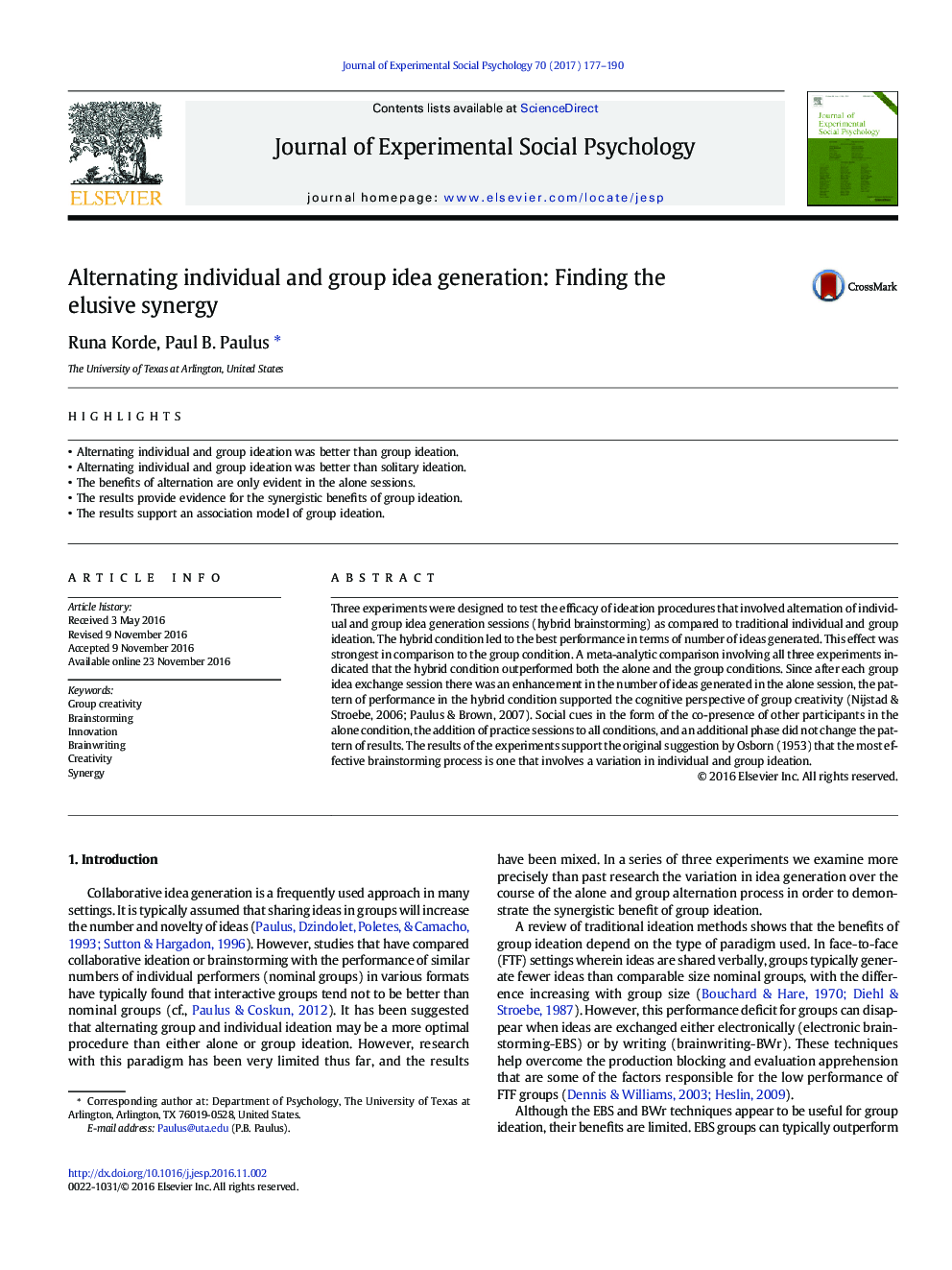| Article ID | Journal | Published Year | Pages | File Type |
|---|---|---|---|---|
| 5045642 | Journal of Experimental Social Psychology | 2017 | 14 Pages |
•Alternating individual and group ideation was better than group ideation.•Alternating individual and group ideation was better than solitary ideation.•The benefits of alternation are only evident in the alone sessions.•The results provide evidence for the synergistic benefits of group ideation.•The results support an association model of group ideation.
Three experiments were designed to test the efficacy of ideation procedures that involved alternation of individual and group idea generation sessions (hybrid brainstorming) as compared to traditional individual and group ideation. The hybrid condition led to the best performance in terms of number of ideas generated. This effect was strongest in comparison to the group condition. A meta-analytic comparison involving all three experiments indicated that the hybrid condition outperformed both the alone and the group conditions. Since after each group idea exchange session there was an enhancement in the number of ideas generated in the alone session, the pattern of performance in the hybrid condition supported the cognitive perspective of group creativity (Nijstad & Stroebe, 2006; Paulus & Brown, 2007). Social cues in the form of the co-presence of other participants in the alone condition, the addition of practice sessions to all conditions, and an additional phase did not change the pattern of results. The results of the experiments support the original suggestion by Osborn (1953) that the most effective brainstorming process is one that involves a variation in individual and group ideation.
